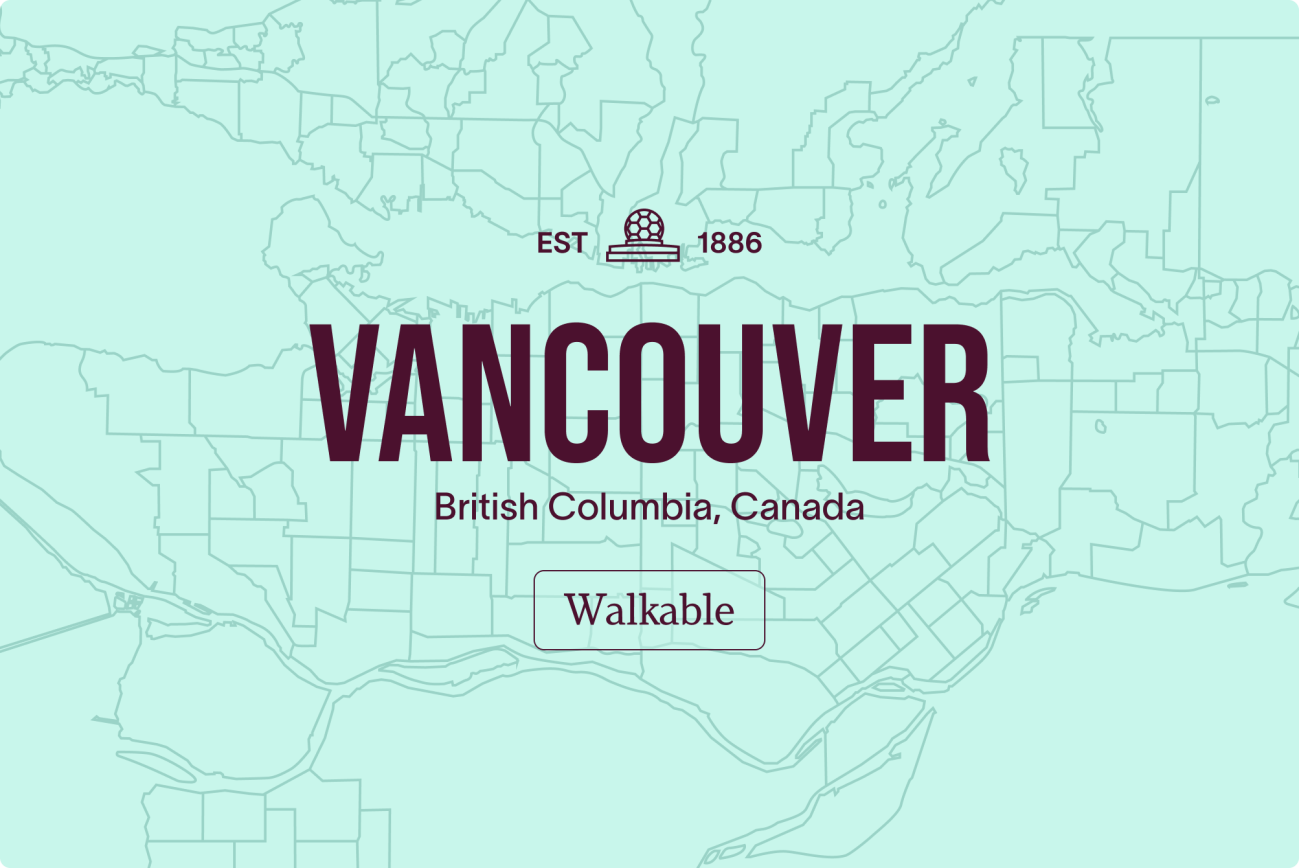Last year the Canada housing market saw a freeze across much of the country, but as we enter the spring there are a number of signs suggesting that we’re finally through the worst of it and that things are looking up.
Canada housing market key takeaways
- Interest rate hikes were paused at 5% for the fourth time at the end of January.
- Inflation sits at 3.4%, inching closer to the central bank’s 2% target.
- The central bank’s next rate decision takes place on March 6.
- Most experts agree that further rate hikes are very unlikely in 2024, but opinions on when rates could come down vary.
- Estimates suggest that 2.2 million Canadian homeowners’ mortgages will be up for renewal in the next year or two—and will likely be facing much higher interest rates than when they bought.
- Demand-supply conditions remain tight, although resales increased at the end of 2023.
- Despite market conditions, home prices are trending down since the end of last year.
- The Canada housing market is showing signs of improvement, particularly in the Toronto and Vancouver markets. Calgary remains a housing market “hotspot” and outlier.
- It could be the second half of 2024 before we see the Canada housing market making a sustained recovery.
No change in interest rates—yet
At the end of January the Bank of Canada announced no rate change for the fourth consecutive time. This pause in rate hikes offers a welcome respite for the housing market, which has felt the effects of 10 rate hikes in the last 21 months. The policy rate held at 5%, so bank prime rates for mortgages remain high at around 7%, but the continued pause is certainly encouraging.
With inflation cooling to 3.4%, the central bank is inching closer to its 2% target, prompting most experts to agree that further rate hikes are very unlikely in 2024. However, hopeful homebuyers will have to wait until later in the year—likely after the spring buying season—if they would like a better chance of benefiting from lower interest rates.
While the central bank has not indicated explicitly if or when rates will drop, all eyes will be on the bank at its next rate decision on March 6. And inflation did rise in December 2023, which is a good reminder that the trajectory toward lower rates will not always be linear.
The decision will also be especially important to the reported 2.2 million Canadian homeowners (CTV News) who will renew their mortgages in the next year or two and will likely face much higher rates than the historically low rates of the pandemic, when they bought.
The Canada housing market: An affordability problem
After persistent interest rate hikes over the last year, coupled with limited supply, buying a home in Canada has become increasingly unaffordable. As a result, the housing market froze to an almost standstill in 2023. Prospective buyers are hoping that both rates and home prices will come down before they start looking, while sellers are waiting to sell to maximize their equity. But if demand continues to outstrip supply, this will push prices even higher.
According to an RBC special report, January figures showed no signs of an increased number of sellers, with the lack of new listings making demand-supply conditions even tighter. However, the report notes the risk that “mortgage renewal payment shocks could set off a wave of distressed sales”, which could help to loosen things up.
In other words, if some of the anticipated increased market activity can be accounted for by current homeowners looking to downsize or go back to renting to avoid higher mortgage rates at renewal, then the increased supply of homes to the market could prevent prices from soaring to new heights.
Current state of the market: Where are we now?
According to an RBC Canada housing market report, home prices began edging down consistently for the last three months of 2023. The composite MLS Home Price Index (MLS HPI) for Canada dropped 0.8% month-over-month in December 2023.
While the number of new listings nationwide dropped by 5%, the number of resale transactions (from pre-existing inventory) grew significantly by 8.7% month-over-month. And some of the spring’s coolest markets, such as B.C. and Ontario, recorded even larger increases by year-end. This can be read as a positive sign, considering that last spring saw nationwide resales hit “recession levels.”
However, experts do warn that December and January are the quietest times of year for the housing market, so any seasonally adjusted movement should be noted with that in mind. Only the next few months will confirm whether we’re finally on the upturn. Demand-supply conditions are softening but remain tight with a limited supply of homes coming onto the market, which means that affordability is still an issue across much of the country.
Nevertheless, with predictions on the market improving, incremental declines in mortgage rates and price concessions from sellers, it would appear that buyers at the tail-end of 2023, at least, were feeling more confident about making property investments.
So where does this leave those with a financial interest in the Canada housing market?
With inflation coming down and interest rates levelling out, as well as increased confidence in the market, experts are hopeful that we may be through the worst of it and have avoided the crash that many were predicting this time last year.
But how this will impact home prices this year is yet to be seen. Spring is typically the busiest season for the housing market and with that comes an increased demand. If the Bank of Canada cuts interest rates at some point this year, as most experts are anticipating, then mortgages will become more affordable for buyers. However, for home prices to come down, there will have to be an increase in supply to satisfy a surge in demand in an already tight market. Therefore, a decrease in home prices will be largely dependent on whether there are current homeowners who are now ready to make a move after holding off in 2023—and whether the effect of the last year’s-worth of rate hikes has not dampened demand too much.
Variations in the market across the country
According to a recent RBC special report, there are a number of key indicators to suggest that the Canada housing market is improving, although this varies by location. In almost all markets affordability remains a challenge, but prices did fall marginally in January month-over-month. The interest rate drops for fixed-rate mortgages at the end of last year have also provided a glimmer of hope for prospective buyers across the country.
In the Toronto market, home resales increased by 9.6% in January and the MLS HPI went down by an additional 1.2% month-over-month (totalling a 7.2% decrease) since last July. However, if market conditions continue to tighten, home prices will likely stop going down, with some experts suggesting they may hit rock bottom in the spring.
A similar boost in activity took place in Vancouver, where home resales grew, perhaps as a result of both a drop in fixed mortgage rates and increased listings. The MLS HPI is also showing another month of slight decline, a trend that many are hoping will continue given that Vancouver is facing some of the worst affordability conditions in the country.
In Montreal, the market is taking longer to respond and the market has held with little to no change in prices, demand-supply conditions or resales. Experts predict that lower interest rates will help boost activity, although it will likely be later this year until this is reflected in home prices.
For those hoping to enter a market on the up, then Calgary is quickly becoming what some are calling, “Canada’s housing hotspot.” In January, home prices rose by 10% from last year and market activity was up by almost 80% since before the pandemic. Tight market conditions, slowing inventory and a drop in interest rates is predicted to see Calgary home prices continue to rise.
The housing market outlook for spring 2024
The housing market outlook may be brighter, but the road to recovery could still have a few twists and turns in it. As spring approaches, it will be telling to see how a continued pause or drop in interest rates will impact demand-supply conditions.
If mortgage rates come down and cause a sudden increase in demand, it could put more pressure on an already limited supply and cause prices to go up further, driving housing unaffordability. However, if homeowners who bought during the low interest rates of the pandemic can no longer afford to renew their mortgages at the current rates then they may decide to downsize or rent and this could put more homes on the market. There also may be some homeowners who have held off on selling until the market improves, which could also ease the supply issue and help prevent prices from soaring.
The general consensus is that the deep freeze that the housing market has seen in the past year is finally showing signs that it’s beginning to thaw. So if you’re hoping to buy in the near future, experts advise monitoring the market closely and paying close attention to home prices, inventory and mortgage rates, so you can plan ahead and understand how much you can afford. However predictions suggest that most buyers will likely have to wait until the second half of the year.
Tips for buyers in the current housing market:
-
Find out how much you can afford
While most experts are advising patience in this market, you still want to be financially prepared to make an offer when the time comes. The first step is to get pre-qualified for a mortgage. The RBC True House Affordability pre-qualification takes minutes to complete and has no impact on your credit score. You can then work with a financial advisor to get pre-approval, which is a more reliable and accurate indication of how much you could afford.
-
Consider your mortgage options
It’s never too soon to talk with a financial advisor and explore your mortgage options based on your needs. By weighing up the amount you can afford for a down payment, the mortgage term, the cost of interest and your monthly payments, you can determine ahead of time what type of mortgage might make the most sense for you.
Make a list of your priorities and needs, so you can narrow in on what you’re looking for. Think about the features that would be most important to you in your new home and those which you’d be willing to bend on. By knowing this ahead of time you can more efficiently filter your options once you start looking.
Based on your budget and your needs you can start to create a shortlist of neighbourhoods, which would work best for you. You can then take the time to visit and research those areas to determine where you’d like to be. You may want to consider factors like access to local amenities, schools in the area or your commute time. You can also visit some open houses and start to get a feel for the type of homes available in your area of interest.
Tips for homeowners in the current housing market:
With interest rates levelling out and the market looking like it will pick up, you may be considering selling your home. But as a homeowner, it’s always important to think ahead to your next steps and try to time it well. If you’re planning on buying another home, then you have to consider both your position as a seller and then as a buyer entering the same market (if that’s the case). Think about how your home sale could impact how much you could afford on your next home. If you’re due to renew your mortgage on your current home, could the increase in rates since you purchased mean it may be more affordable for you to downsize or rent? There are multiple questions to ask before you take your next steps.
-
Get ahead on any renovations or repairs
If a home sale is your next move then it’s worth ensuring any renovations or repairs are done in advance, so that you’re showing your home in its best light. As with any renovations, you should always factor in your budget and your timeline. If you’re hoping to sell in the busy spring market, then major renovations might not be possible, in which case you might consider how that will impact your asking price or timelines.
With so much uncertainty on the current state of the housing market, a professional real estate agent could be an invaluable resource to guide you through your sale and help you price your home and sell it for the best price.
Houseful is here for your next steps
From getting your keys to getting back on the market—and all the days in between—Houseful is here to help you keep an eye on the big picture. Let’s see what’s possible and take the next step toward fulfilling your home ownership goals. Visit houseful.ca.




